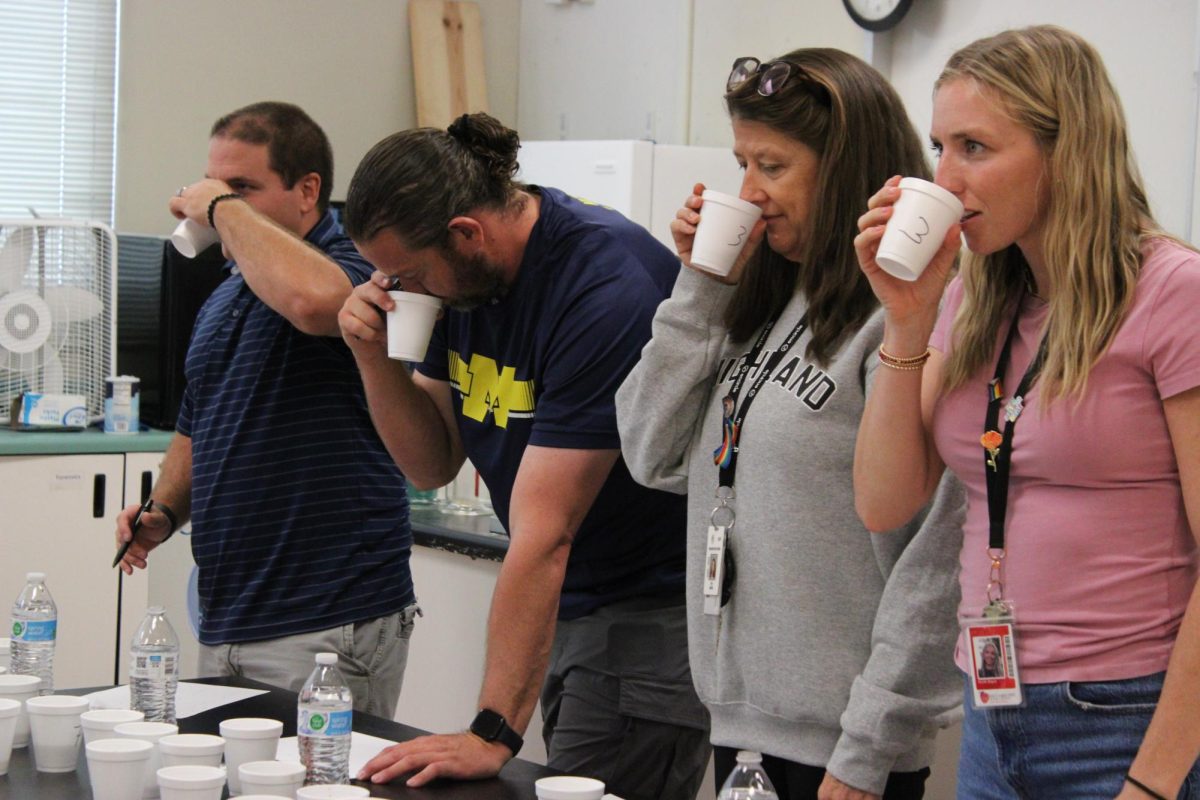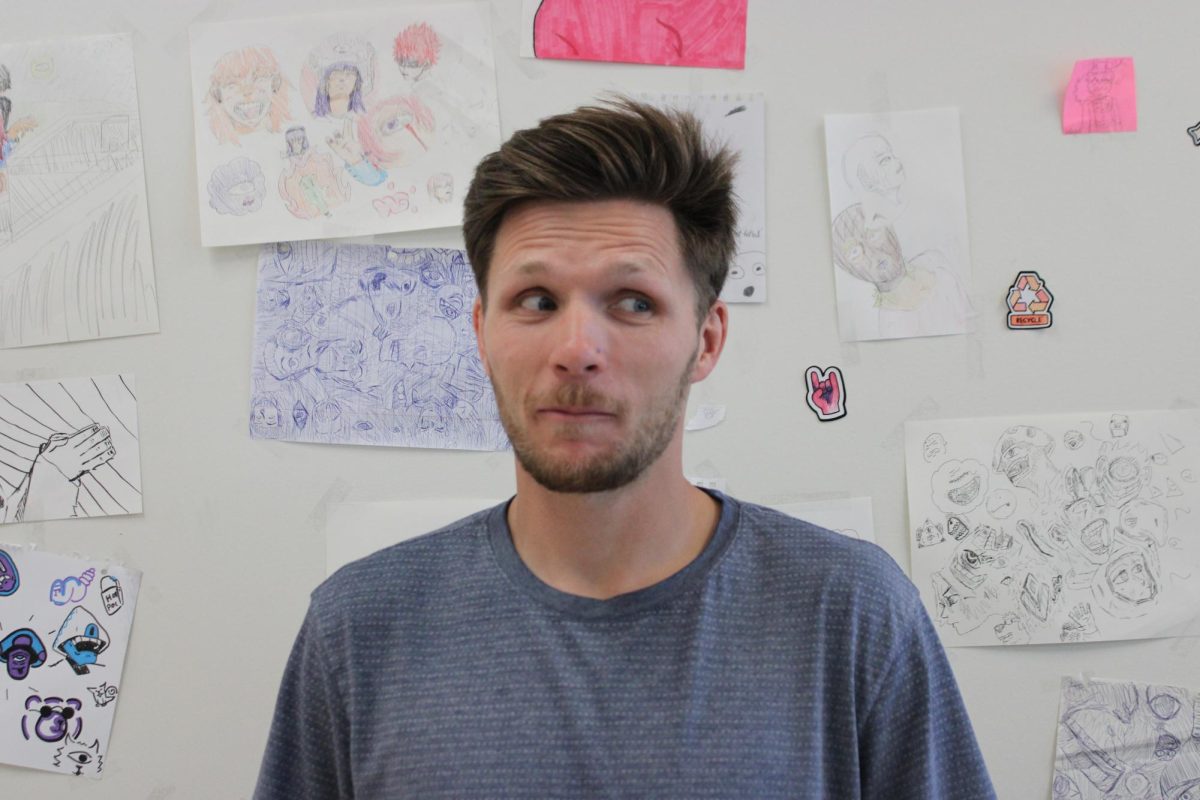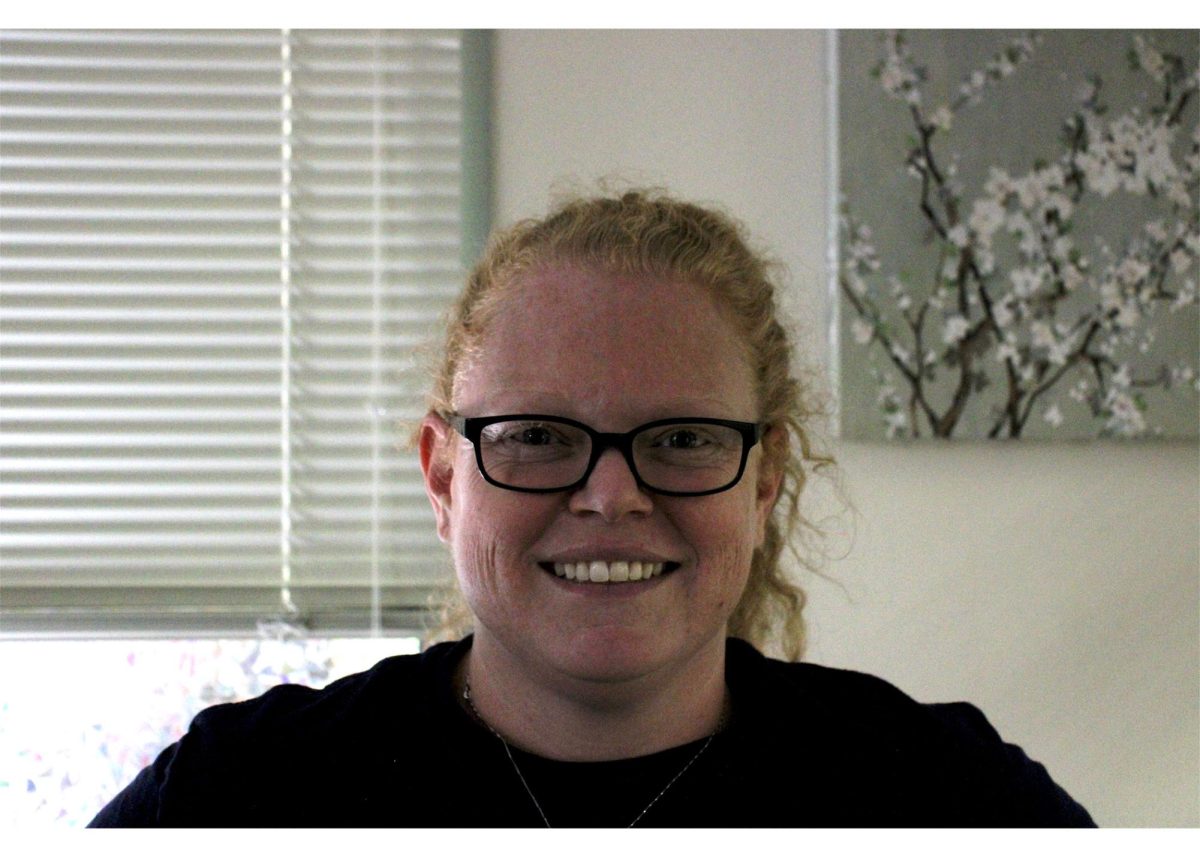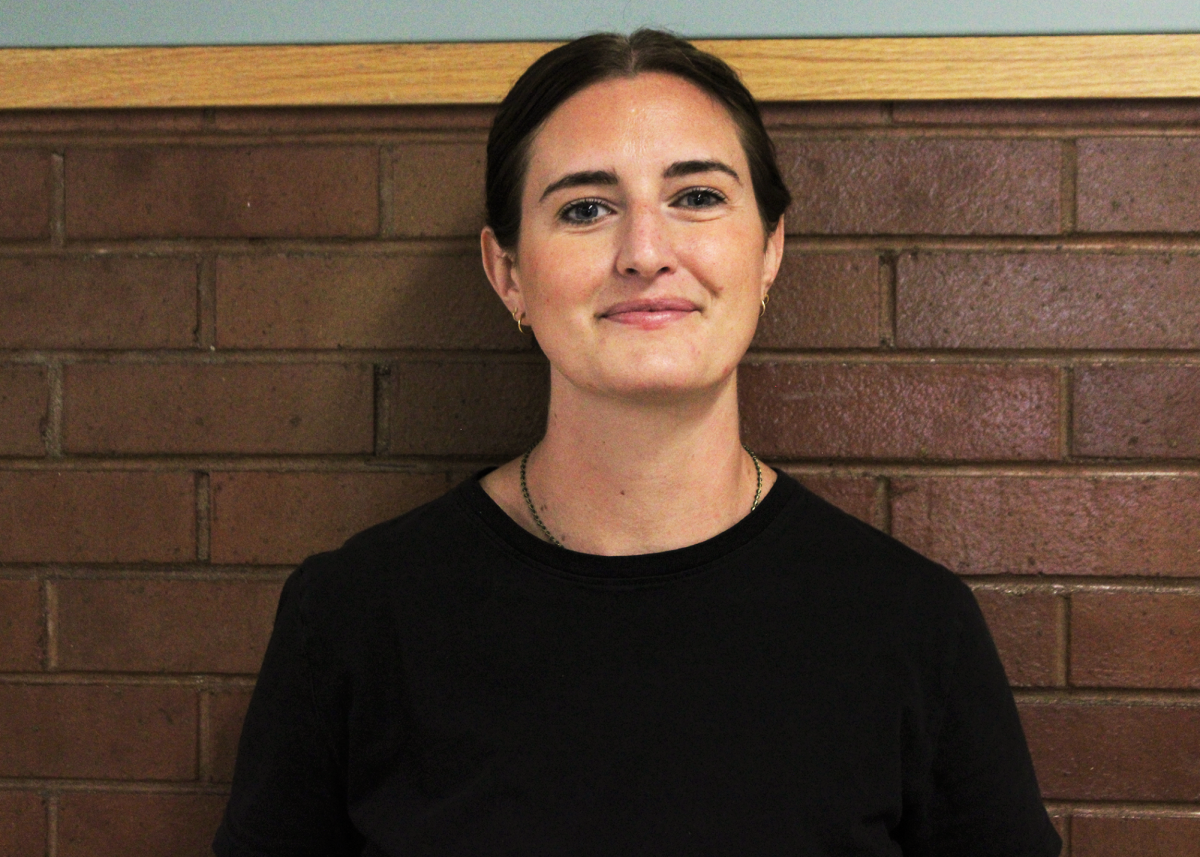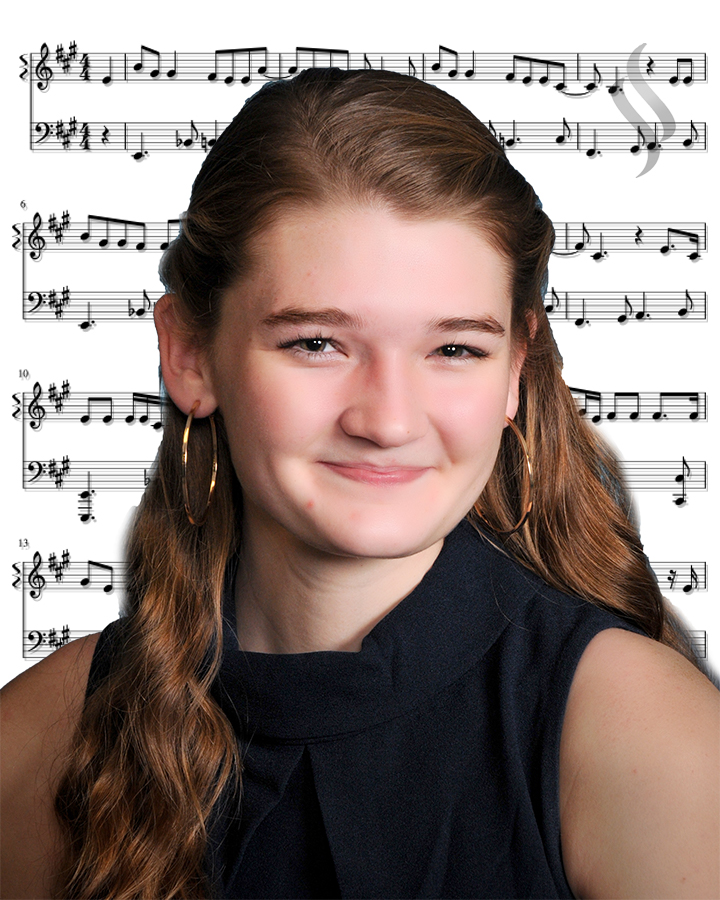Lia Whisenant
April 15, 2020
Lia Whisenant has been very musically talented her entire life, and she has found a longtime passion in the violin. But instead of being furiously competitive, she uses music as a way to express her deepest thoughts.
“I’m not very competitive with the violin. The biggest point of music in my life is to make people feel the emotions I want to feel, to connect and communicate,” Whisenant said.
This mature outlook towards her talent has developed over many years. From an early age, Whisenant’s family was very musical; her mother and brother played the piano often. At the age of six, Whisenant began taking lessons on this instrument. Within a few years, her abilities had caught up with those of her older brother, which her mother thought would hurt his confidence.
This is when she started learning the violin. Her mother, Sarah Whisenant, greatly appreciated this.
“I’ve always loved the sound of the violin, but I wasn’t allowed to learn it growing up, so now I really like hearing it in the house,” Sarah said.
Whisenant has been playing for many years now, but the path was not always easy. Like many children, she didn’t like practicing very much and she sometimes fought with her mother over it. Through it all, however, Whisenant had a natural aptitude for music and this helped her to not give up.
Several years later, Whisenant decided to join the Young Artist Chamber Players community orchestra, led by seasoned virtuoso Jack Ashton.
Even though Whisenant had practiced as a soloist for many years, the transition to playing in an orchestra was not a difficult one for her. She said the main thing she had to adapt to when playing with others is that “you have to learn to conform with a group and bring your sound together.”
After watching her play in the orchestra, Ashton told Whisenant that he had an opening in his private lesson schedule. Whisenant’s teacher, who herself had been taught by Ashton, encouraged her to take advantage of this special opportunity.
This is when Whisenant realized the importance of a great teacher.
“He’s so advanced, and knows so much about the violin, that every lesson feels like a performance,” which motivates her to practice harder and improve, she said.
Many serious violinists may experience physical ramifications from a vigorous practicing schedule such as carpal tunnel syndrome or tendonitis. Fortunately, said Whisenant, the worst injury she has suffered from the violin is cutting her fingernails too short (string players can’t have long nails because they will interfere with left hand finger placement and vibrato).
Over time, taking lessons from Ashton built up Whisenant’s abilities and confidence, so in her junior year she auditioned for and was accepted into Highland’s Symphony Orchestra.
Still, after so many years, music is a large part of Whisenant’s life. In her earlier years of performing, Whisenant said that she preferred playing slow, emotional pieces, but now she enjoys the rigor and technicality of quicker ones. Besides the violin, she likes to make up songs on the piano, try out the viola, play around on the guitar and ukulele, and sing in Highland’s advanced Madrigals choir. She hopes to continue to play for fun into her adult life.
In the next few years, Whisenant would like to study something in the medical field, perhaps nursing or pediatrics, at Brigham Young University. She would also like to minor in math and play in the college orchestra.
When she’s not practicing for Jack Ashton’s 100 Hours of Practicing in 100 Days Challenge, Whisenant likes to watch movies and TV shows. Her favorites are Psych, Parks and Rec, or any Christmas movies.
Whisenant is a good example of someone who is serious about her musical talent, but also is able to know what she wants and play for fun. If she continues this healthy moderation into her life, she can do great things.




